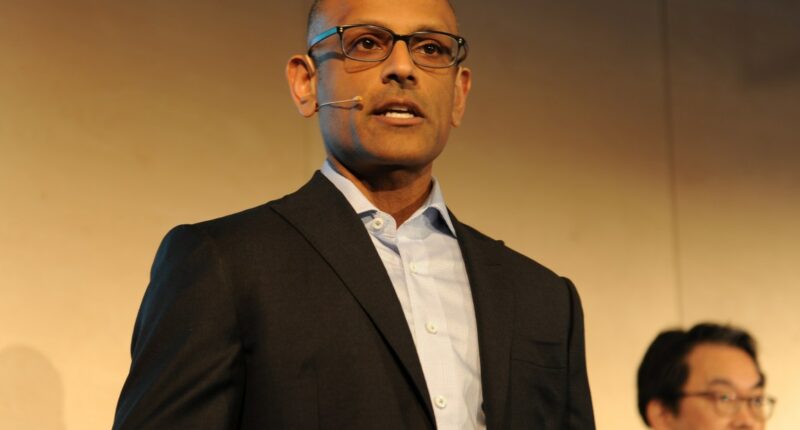Share this @internewscast.com
To grasp Microsoft’s strategic vision within the competitive landscape of artificial intelligence, one need only look to the recent announcements made at the GitHub Universe developer conference in San Francisco. This event spotlighted a significant phase for GitHub, one of Microsoft’s pivotal yet often overlooked resources.
With a user base exceeding 180 million developers, GitHub is positioning itself as the cornerstone for AI-driven coding tools. The introduction of its new Agent HQ interface is a testament to this ambition. This platform allows external coding assistants, such as OpenAI’s Codex and Anthropic’s Claude Code, to integrate seamlessly into the GitHub ecosystem.
The timing of this development is crucial. As the landscape of software creation rapidly evolves with agentic coding tools, GitHub’s swift adaptation is essential to prevent Microsoft from falling behind. These innovative tools, like Cursor—which also unveiled significant updates this week—are transforming how code is crafted. They are now capable of managing entire workflows for developers, advancing beyond mere code completion. In the realm of software development, the line between a supportive assistant and an actual collaborator is becoming increasingly blurred.
Jared Palmer, who recently stepped into the role of senior vice president at GitHub after leaving Vercel, underscored the necessity for an inclusive ecosystem during our conversation prior to the Universe conference. “GitHub is in this interesting transition phase,” Palmer noted. “It needs to evolve into the platform for not just people, but also agents.” This transition reflects GitHub’s commitment to expanding its capabilities to embrace both human and AI participants in the development process.
“We need to have a very arms-wide-open ecosystem.”
Jared Palmer, GitHub’s new senior vice president, joined Microsoft from Vercel just 10 days before we spoke ahead of this week’s Universe conference. “GitHub is in this interesting transition phase,” he said. “It needs to evolve into the platform for not just people, but also agents.”
Palmer said the goal is to keep GitHub “the home where development happens,” no matter which AI tools developers choose. “We need to have a very arms-wide-open ecosystem,” he told me. In addition to OpenAI and Anthropic, Google, Cognition, and xAI have also committed to bringing their coding agents to Agent HQ in the coming months.
Thanks to GitHub’s longtime, essential role in storing code, it has a good shot at becoming the connective layer between agents and codebases. That would mean Microsoft stays at the center of the developer universe. If it doesn’t, developers could move their work and their data elsewhere over time.
Jay Parikh oversees GitHub as Microsoft’s executive vice president of CoreAI. The longtime Facebook CTO and Atlassian board member joined Microsoft nearly a year ago and now leads a group of roughly 10,000 people. His mandate is to rethink the entire Microsoft stack for building AI applications: infrastructure, security, and the tools developers use every day.
“We need to move faster,” Parikh told me in an interview this week. “We need to build better tools, different tools. We need to have that developer ecosystem, that choice, and all the things that support this new way of building software.”
“Humans are going to start spending more time in the specification and creative process and delegate the actual calories they spend to GPUs.”
He sees GitHub’s role as essential to that plan, which explains why Microsoft folded GitHub into his CoreAI group in August. “You really want GitHub to be that place, that toolchain, that community for developers to really unlock this innovation,” he said. “Humans are going to start spending more time in the specification and creative process and delegate the actual calories they spend to GPUs, to coding agents that generate the code.”
As GitHub COO Kyle Daigle put it to me, “A developer shouldn’t have to build up memory and context in every single tool that they’re using in this AI age. You should be able to connect to GitHub and have that context to determine how you want to work, even if you’re using that tool off GitHub’s platform.”
That bet ties directly to Microsoft’s long-running partnership with OpenAI. On the same day as GitHub Universe, CEO Satya Nadella appeared on TBPN to discuss Microsoft’s updated partnership with OpenAI. He said that “GitHub is where that billion to ten billion happened” — a reference to how the early traction of GitHub Copilot, powered by OpenAI’s Codex, convinced him to dramatically expand Microsoft’s initial $1 billion investment in OpenAI.
GitHub has always served two critical roles: it’s a massive repository of open-source code and one of the largest collaboration hubs ever built. Engineers use it not only to store and manage their code, but to find jobs and build community. Microsoft may have sparked the AI coding boom with the original GitHub Copilot, but now it has to prove it can keep up with where the industry is headed.








